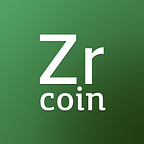Our company was recently featured in Russian Forbes! You can read a translation here, or take a look at the summary below.
Conventional crowdfunding is increasing in popularity, but it still has relatively few serious use cases. Pebble is one of the exceptions — a campaign that captured public attention and collected a record $10 million on Kickstarter. At the present time, many ideas are still frivolous, humorous or somewhat shady enterprises that reward the investor with a product that is either late, rough around the edges or entirely absent, much like the entrepreneur who solicited funding in the first place.
Enter bitcoin and the blockchain — a technology that, like crowdfunding, has been associated with its fair share of scams and burned investors. But both bitcoin and blockchain have grown up, gained respectability and are entering the mainstream. The democratising impact that bitcoin offered for financial transfers is now being applied to crowdfunding, with the result that ordinary people have the chance to break down the barriers to accessing investment capital. Innovation and, in this instance, industrial production, are no longer the preserve of large corporations.
Such an opportunity arose through a meeting between two men: one a blockchain expert, the other a scientist who had helped develop a new environmentally-friendly process for manufacturing zirconium dioxide. The idea was solid, but the bottom line is till the bottom line. As fictional conman Ostap Bender’s famous quote goes, ‘Money in the morning, chairs in the evening.’ In other words: payment in advance, or no dice. The project needed investment, and accepting traditional venture capital would have involved giving up control of his business. Banks would have demanded impossible amounts of collateral. Blockchain, though, held out an intriguing and promising alternative.
And so was launched the ZrCoin ICO, or ‘initial coin offering’: a blockchain-based crowdfund that was able to access investors all over the world with minimal effort and friction, since it operated outside of the legacy banking system with its barriers and costs of transferring money. Crowdfunding the minimum of $3.5 million in bitcoins and other blockchain-based currencies turned out to be a matter of little more than days, and the total is still rising.
This money will be used to build a processing plant and launch the production of so-called synthetic zirconium, with a projected revenue stream of 70 million roubles per month. These funds will be used to purchase the blockchain tokens distributed to investors at the crowdfund, buying them back at a premium of up to 100%. If investors don’t want to wait until production starts, around 8 months after the crowdfund closes, they can sell their ZrCoins to other buyers on the open market. There is also the option to convert them to equity in the company at a later date, with the prospect of a much higher ROI.
ZrCoin isn’t the first Russian business to take this approach — ChronoBank and Kolionovo are two recent examples of successful blockchain crowdfunds. But it is the first to create a real-world manufacturing business from scratch on the back of an ICO. It does more than set a precedent: it blazes a trail. The success of ZrCoin will prove to have far greater significance than for the zirconium industry alone.
